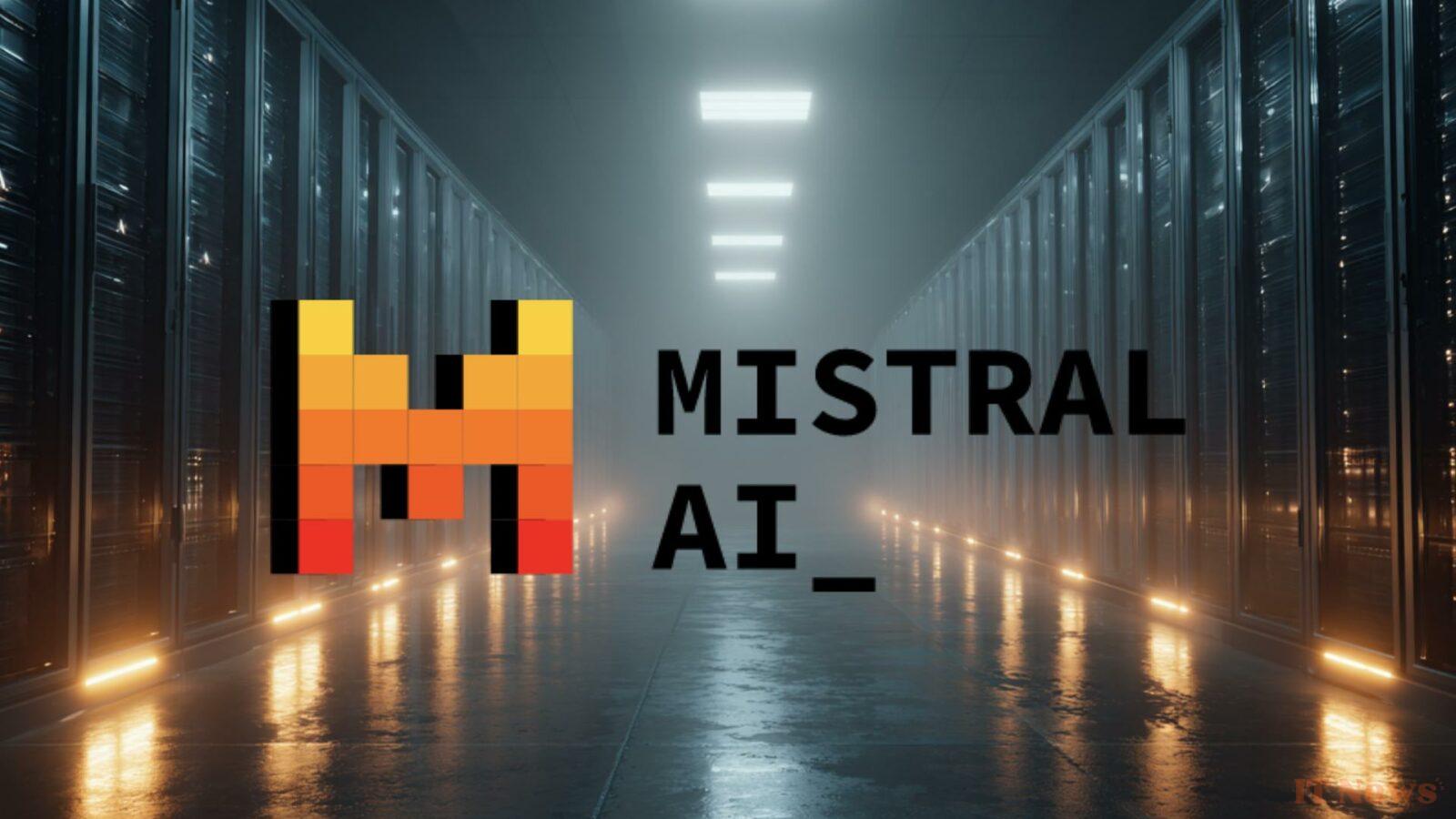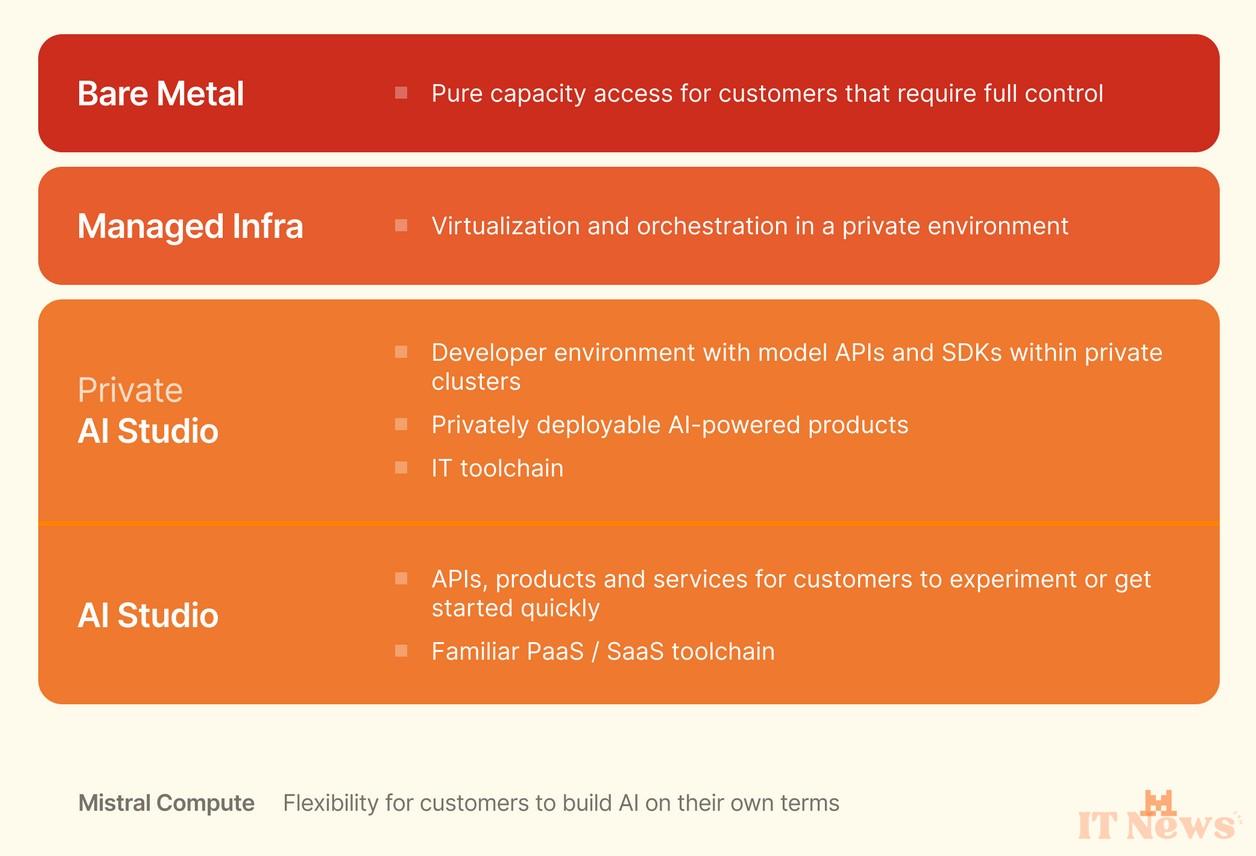For several years now, the French startup Mistral has established itself as the champion of generative artificial intelligence in France, and even in Europe. It recently announced its intention to assume this status and defend the colors of the Old Continent in this technological race. To achieve this, Arthur Mensch and his teams have launched a new project: creating a sovereign French infrastructure entirely dedicated to AI.
The rise of OpenAI and its essential ChatGPT has made many political decision-makers aware of the growing strategic importance of this technology. With each passing day, it becomes clearer that the nations leading the AI race will have a significant advantage in economic competitiveness and geopolitical influence, and will be best positioned to shape tomorrow's technological landscape.
Mistral Compute, a European AI infrastructure
Emmanuel Macron is also aware of this. For some time now, he has openly stated his intention to position France in this race, in particular to avoid becoming bogged down in perpetual dependence on American and Chinese giants. Last February, at the Paris International Summit on Artificial Intelligence, he put his money where his mouth is by unveiling a €109 billion investment plan to develop AI in France. And the outlines of this program are finally beginning to take shape.
At the VivaTech trade show, Emmanuel Macron, Jensen Huang (Nvidia) and Arthur Mensch (Mistral) formalized Mistral Compute, a new cloud platform that will be hosted and managed entirely from Europe. Its objective: to massively strengthen the sovereignty and autonomy of France and Europe in the field of AI.
«This foray into infrastructure is a strategic milestone. It allows us to address a critical building block in the AI chain," said Mistral's co-founder and CEO in a press release. "This is an unprecedented initiative in AI infrastructure in Europe and a strategic initiative that will ensure that all nation states, companies, and research laboratories remain at the forefront of AI innovation."
Technological sovereignty, a matter of concessions
One drawback, however: Europe unfortunately does not have all the skills and industrial capacities necessary to mount such a project alone. This gap is particularly glaring in one area in particular: hardware. Indeed, the current AI ecosystem relies largely on specialized hardware that no local player is capable of producing.
To get closer to its goal, the European contingent had no choice but to partner with a foreign company, now a key player in this industry. As you may have guessed, this is Nvidia, the American hardware titan. It will provide the heart and lungs of this infrastructure, namely 18,000 GB200 GPUs under Blackwell architecture, to launch the machine.
Intuitively, one might think that the involvement of Jensen Huang and his teams is enough to call into question the "sovereign" nature of this project. Can Europe really claim strategic autonomy if an American giant plays such a central role?
The key nuance here is that in the current ecosystem, sovereignty cannot be an absolute notion. No country, whatever it may be, is entirely technologically autonomous. Even the United States relies heavily on Taiwanese semiconductor specialists like TSMC. And they themselves rely on equipment designed by players like ASML, based in the Netherlands.
This partnership should therefore not be seen as a renunciation. Value chains today are far too intertwined and interconnected to aim for total autonomy. In practice, this is a pragmatic and essential concession. It is quite simply the only path that could ultimately allow Europe to achieve a certain degree of strategic independence in this sector, where it is starting out with a considerable delay.
A strategic turning point
Certainly, the hardware essential to this infrastructure is supplied by an American company. But the software part—the part that directly concerns data processing—will remain in the hands of European entities, and that already represents an important step. Because, ultimately, sovereignty cannot be proclaimed: it can only be built brick by brick, and that is precisely what Mistral has begun to do with Compute.
French industry also seems convinced by the project. Still according to Les Echos, several French giants have already signed contracts to benefit from this infrastructure. The business daily cites prestigious clients such as BNP Paribas, Orange, Veolia, Thales, Schneider Electric, SNCF, and Kyutai, the artificial intelligence research institution founded by Xavier Niel. All these companies will benefit from priority access to these resources from 2026, the date at which Mistral Compute is expected to enter the thick of things.
It will therefore be important to closely monitor the development of this platform and, above all, to observe its impact on the technological and strategic autonomy of France and Europe. Because ultimately, more than an industrial project, Mistral Compute marks a real strategic turning point—a strong signal from a Europe determined to play a significant role on the international scene, both technologically and politically.




0 Comments